
Paul Gauguin Painting Reproductions 4 of 8
1848-1903
French Post-Impressionist Painter
183 Gauguin Paintings
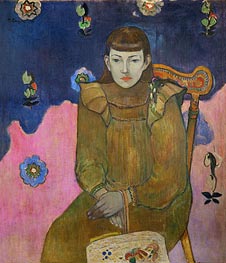
Vaiite (Jeanne) Goupil 1896
Oil Painting
$838
$838
Canvas Print
$80.49
$80.49
SKU: GAP-12997
Paul Gauguin
Original Size: 75 x 65 cm
New Carlsberg Glyptotek, Copenhagen, Denmark
Paul Gauguin
Original Size: 75 x 65 cm
New Carlsberg Glyptotek, Copenhagen, Denmark
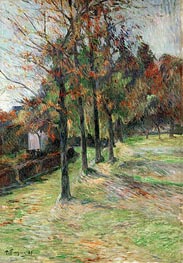
Road in Rouen 1885
Oil Painting
$630
$630
Canvas Print
$71.74
$71.74
SKU: GAP-12998
Paul Gauguin
Original Size: 57.4 x 40.4 cm
New Carlsberg Glyptotek, Copenhagen, Denmark
Paul Gauguin
Original Size: 57.4 x 40.4 cm
New Carlsberg Glyptotek, Copenhagen, Denmark
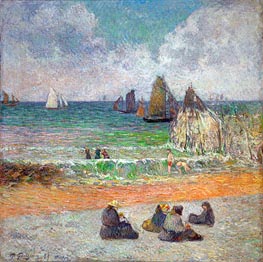
The Beach at Dieppe (The Bathers) 1885
Oil Painting
$898
$898
Canvas Print
$93.59
$93.59
SKU: GAP-12999
Paul Gauguin
Original Size: 71.5 x 71.5 cm
New Carlsberg Glyptotek, Copenhagen, Denmark
Paul Gauguin
Original Size: 71.5 x 71.5 cm
New Carlsberg Glyptotek, Copenhagen, Denmark
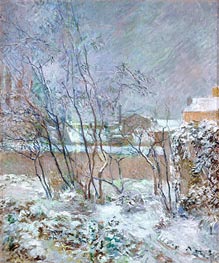
Snow in the rue Carcel 1883
Oil Painting
$661
$661
Canvas Print
$77.93
$77.93
SKU: GAP-13000
Paul Gauguin
Original Size: 60 x 50 cm
New Carlsberg Glyptotek, Copenhagen, Denmark
Paul Gauguin
Original Size: 60 x 50 cm
New Carlsberg Glyptotek, Copenhagen, Denmark
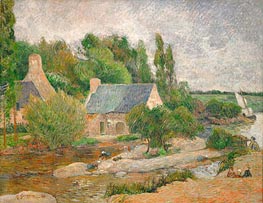
Washerwomen in Pont-Aven 1886
Oil Painting
$852
$852
Canvas Print
$72.32
$72.32
SKU: GAP-13001
Paul Gauguin
Original Size: 71 x 90 cm
Musee d'Orsay, Paris, France
Paul Gauguin
Original Size: 71 x 90 cm
Musee d'Orsay, Paris, France
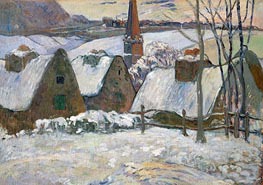
Village in Brittany in the Snow 1894
Oil Painting
$803
$803
Canvas Print
$65.85
$65.85
SKU: GAP-13002
Paul Gauguin
Original Size: 62 x 87 cm
Musee d'Orsay, Paris, France
Paul Gauguin
Original Size: 62 x 87 cm
Musee d'Orsay, Paris, France
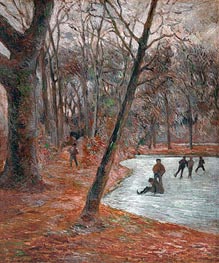
Sklaters in the Park in Frederiksberg 1884
Oil Painting
$687
$687
Canvas Print
$77.93
$77.93
SKU: GAP-13003
Paul Gauguin
Original Size: 65 x 54 cm
New Carlsberg Glyptotek, Copenhagen, Denmark
Paul Gauguin
Original Size: 65 x 54 cm
New Carlsberg Glyptotek, Copenhagen, Denmark
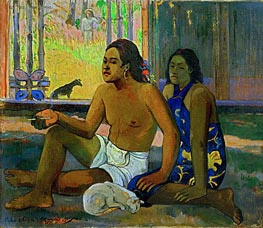
Eiahe Ohipa - Do not Work 1896
Oil Painting
$853
$853
Canvas Print
$81.00
$81.00
SKU: GAP-13004
Paul Gauguin
Original Size: 65 x 75 cm
Pushkin Museum of Fine Arts, Moscow, Russia
Paul Gauguin
Original Size: 65 x 75 cm
Pushkin Museum of Fine Arts, Moscow, Russia
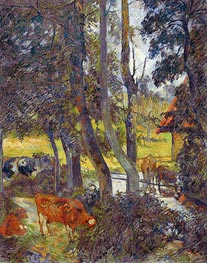
Landscape in Normandy with Pond 1885
Oil Painting
$728
$728
Canvas Print
$73.68
$73.68
SKU: GAP-13005
Paul Gauguin
Original Size: 81 x 65 cm
Civica Galleria Nazionale d'Arte Moderna, Milan, Italy
Paul Gauguin
Original Size: 81 x 65 cm
Civica Galleria Nazionale d'Arte Moderna, Milan, Italy
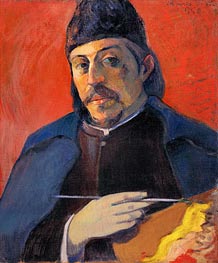
Self Portrait with Palette c.1893/94
Oil Painting
$852
$852
Canvas Print
$77.25
$77.25
SKU: GAP-13006
Paul Gauguin
Original Size: 93 x 73 cm
Private Collection
Paul Gauguin
Original Size: 93 x 73 cm
Private Collection
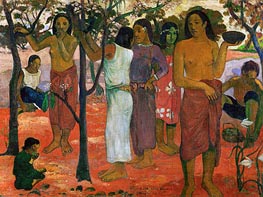
Nave nave nahana (Delicious Day) 1896
Oil Painting
$1154
$1154
Canvas Print
$70.10
$70.10
SKU: GAP-13007
Paul Gauguin
Original Size: 95 x 130 cm
Musee des Beaux Arts, Lyon, France
Paul Gauguin
Original Size: 95 x 130 cm
Musee des Beaux Arts, Lyon, France
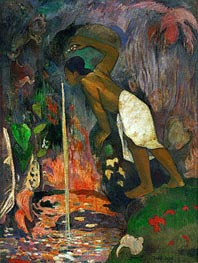
Pape Moe (Mysterious Water) 1893
Oil Painting
$911
$911
Canvas Print
$70.28
$70.28
SKU: GAP-13008
Paul Gauguin
Original Size: 99 x 75 cm
Private Collection
Paul Gauguin
Original Size: 99 x 75 cm
Private Collection
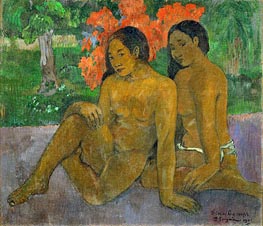
And the Gold of their Bodies 1901
Oil Painting
$803
$803
Canvas Print
$80.31
$80.31
SKU: GAP-13009
Paul Gauguin
Original Size: 67 x 76 cm
Musee d'Orsay, Paris, France
Paul Gauguin
Original Size: 67 x 76 cm
Musee d'Orsay, Paris, France
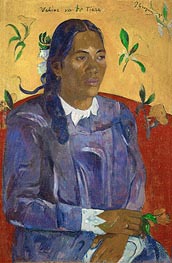
Vahine no te tiare (Tahitan Woman with Flower) 1891
Oil Painting
$818
$818
Canvas Print
$61.75
$61.75
SKU: GAP-13010
Paul Gauguin
Original Size: 70.5 x 46.5 cm
New Carlsberg Glyptotek, Copenhagen, Denmark
Paul Gauguin
Original Size: 70.5 x 46.5 cm
New Carlsberg Glyptotek, Copenhagen, Denmark
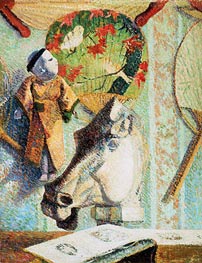
Still Life with Horse's Head 1886
Oil Painting
$723
$723
Canvas Print
$61.75
$61.75
SKU: GAP-13011
Paul Gauguin
Original Size: 49 x 38.5 cm
Bridgestone Museum of Art, Tokyo, Japan
Paul Gauguin
Original Size: 49 x 38.5 cm
Bridgestone Museum of Art, Tokyo, Japan
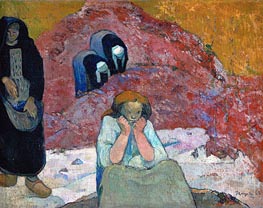
Harvesting of Grapes at Arles (Human Misery) 1888
Oil Painting
$836
$836
Canvas Print
$73.85
$73.85
SKU: GAP-13012
Paul Gauguin
Original Size: 73 x 92 cm
Ordrupgaard, Copenhagen, Denmark
Paul Gauguin
Original Size: 73 x 92 cm
Ordrupgaard, Copenhagen, Denmark
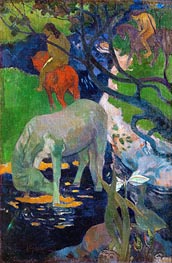
White Horse 1898
Oil Painting
$780
$780
Canvas Print
$61.75
$61.75
SKU: GAP-13013
Paul Gauguin
Original Size: 140 x 91.5 cm
Musee d'Orsay, Paris, France
Paul Gauguin
Original Size: 140 x 91.5 cm
Musee d'Orsay, Paris, France
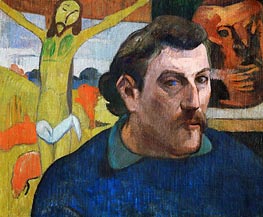
Self Portrait with Yellow Christ c.1890/91
Oil Painting
$693
$693
Canvas Print
$61.75
$61.75
SKU: GAP-13014
Paul Gauguin
Original Size: 38 x 46 cm
Musee d'Orsay, Paris, France
Paul Gauguin
Original Size: 38 x 46 cm
Musee d'Orsay, Paris, France
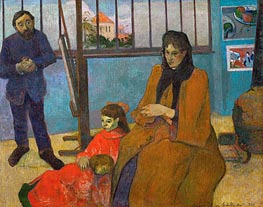
The Studio of Painter Emile Schuffenecker 1889
Oil Painting
$975
$975
Canvas Print
$73.68
$73.68
SKU: GAP-13015
Paul Gauguin
Original Size: 75 x 92 cm
Musee d'Orsay, Paris, France
Paul Gauguin
Original Size: 75 x 92 cm
Musee d'Orsay, Paris, France
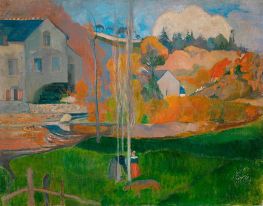
The Mill David, Landscape in Brittany 1894
Oil Painting
$865
$865
Canvas Print
$73.51
$73.51
SKU: GAP-13016
Paul Gauguin
Original Size: 75 x 92 cm
Musee d'Orsay, Paris, France
Paul Gauguin
Original Size: 75 x 92 cm
Musee d'Orsay, Paris, France
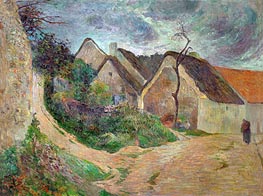
Osny, Mounting Road 1883
Oil Painting
$669
$669
Canvas Print
$69.76
$69.76
SKU: GAP-13017
Paul Gauguin
Original Size: 56.5 x 76 cm
New Carlsberg Glyptotek, Copenhagen, Denmark
Paul Gauguin
Original Size: 56.5 x 76 cm
New Carlsberg Glyptotek, Copenhagen, Denmark
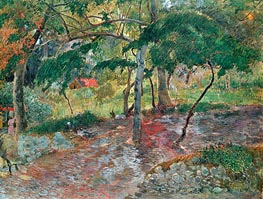
The Pool, Martinique 1887
Oil Painting
$836
$836
Canvas Print
$70.62
$70.62
SKU: GAP-13057
Paul Gauguin
Original Size: 90 x 116 cm
Neue Pinakothek, Munich, Germany
Paul Gauguin
Original Size: 90 x 116 cm
Neue Pinakothek, Munich, Germany
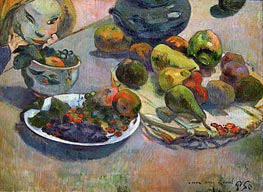
Still Life with Fruits 1888
Oil Painting
$647
$647
Canvas Print
$77.16
$77.16
SKU: GAP-13058
Paul Gauguin
Original Size: 43 x 58 cm
Pushkin Museum of Fine Arts, Moscow, Russia
Paul Gauguin
Original Size: 43 x 58 cm
Pushkin Museum of Fine Arts, Moscow, Russia
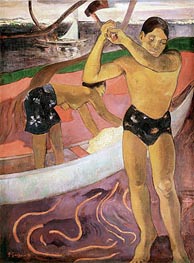
The Man with an Axe 1891
Oil Painting
$911
$911
Canvas Print
$68.92
$68.92
SKU: GAP-13059
Paul Gauguin
Original Size: 92 x 70 cm
Private Collection
Paul Gauguin
Original Size: 92 x 70 cm
Private Collection